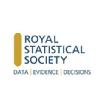Interdisciplinary workshops on Statistics and the Law
Professor Jane Hutton has been awarded the 2023 Mardia interdisciplinary workshop prize. The Mardia Prize was founded by RSS fellow Kanti Mardia, OBE, to ensure continuation of a workshop series he started which brought statisticians together with other academics and professionals in emerging interdisciplinary areas.
Professor Hutton will use the prize funding to host a series of workshops which bring together statisticians and professionals from legal, forensic science and policing. She is working with a team:
Prof Julia Mortera, Università Roma Tre
Dr Amy Wilson, University of Edinburgh
Neil MacKenzie KC, Arnot Manderson Advocates, Edinburgh.
Dr Linda Nichols, University of Warwick
Dr Gail Robertson, University of Edinburgh
Prof Richard Gill (Emeritus), Leiden University
Background and purpose:
Statistics is widely used in expert reports for criminal and civil cases. It is also relevant to better understanding
and operation of the justice system, and the prevention and detection of crime. The Royal Statistical Society (RSS) Statistics and the Law section was founded in 2015. Section members have collaborated with judges, barristers, the Forensic Science Regulator and the Royal Societies (London and Edinburgh) on several statistical guides.
There is scope for further work, particularly in areas other than providing expert opinions for the courts. There will be series of workshops. The views and perceived needs of participants in the legal system, including representatives of the police, the probation service, the Ministry of Justice as well as academic and practising lawyers will be sought. Statistical methods, including statistical design, which address questions raised by legal processes will be explored. The scope of this workshop series is limited. Many areas, for example, financial crimes and financial regulation, cannot be addressed.
One major barrier to increased statistical contributions is the scarcity of statistical data scientists. Ensuring
attendance of earlier career statisticians who might advance the field is important. Development of training
material for statisticians and continuing professional development material for forensic practitioners is a further
opportunity to benefit society.
There will be four workshops in the following topics:
- Probabilistic decision support tools
The potential use of statistical graphical models and probability trees, and integrated decision support systems in forensic work. The application areas considered are: Police procedures and predictive policing, sourcing evidence, the UK Forensic Science Regulator, and the European Network of Forensic Science Institutes (ENFSI) guidelines for reporting forensic evidence, ENFSI audit template for forensic reports.
This workshop will include active application of statistical techniques to case studies using both blackboard and computer software.
Civil litigation in relation to personal injury, and coroners' investigations can require information on the risks to which claimants have been exposed, and the consequences of treatments or accidents. This workshop will consider issues and questions which are faced by legal professionals regarding epidemiology and statistical evidence.
Approaches to evaluating risks of vaccinations, medical treatments and devices and estimating the long-term health outcomes after medical, industrial and traffic injuries will be discussed.
Legal and statistical interpretations of evidence will be compared. The relation between legal questions and statistical concepts is the first consideration. Accessing and assessing data follows, with statistical evaluation of quality and relevance. Alternative methods of estimating treatment effects, quality and length of life will be compared.
Effective approaches to presenting results to different audiences is an important aspect of this workshop. The Statistics and the Law Section of the Royal Statistical Society has contributed to primers for legal professionals. This will be an opportunity to evaluate these documents, and recommend modifications or extensions.
A linked training session for advocates will assess the effectiveness of different styles of reports and presentation of evidence.
- Understanding of legal systems
The aim is to improve knowledge of justice system users, their interactions across the criminal, family and civil courts and their needs, pathways and outcomes. Statistical quality evaluation processes, data linkage and integration of data sources will be considered in the context of linking administrative datasets from the justice system and public services, including factors which influence recording of administrative data.
This workshop might include development of reporting guidelines in the style of those used in health care, to facilitate integration of routine, observational and experimental evidence.
- Algorithms in the justice system
Fairness, effectiveness and efficiency of algorithms in legal systems. Definitions of bias, transparency and explainability of decisions. Good practice in development and evaluation of statistical and machine learning algorithms, including design of randomised studies for evaluation.
This workshop will encourage statisticians with a wide range of expertise and interests to contribute to the
development of the law and legal processes.
The workshops will be by invitation only. Reports from the workshops will be made publicly available.
To register interest in any of the workshops, please follow the links to each workshop in the right panel.
If you need any further information on the workshops, please contact: Dr Linda Nichols, Tel:02476 575110

Workshops
Probabilistic decision support tools
Report: Probabilistic support
3-4 January 2024
University of Warwick, Coventry
Personal injury and medico-legal issues in civil litigationLink opens in a new window
Dates: 27th - 28th June
Venue:
27th June: University of Edinburgh, room to be confirmed
28th June: Faculty of Advocates, Parliament House, Edinburgh, EH1 1RF

